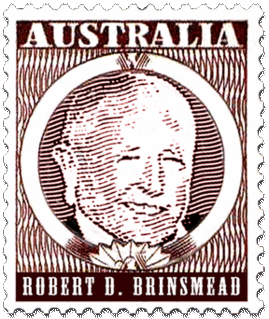A Quote by Michael Horton
To preach the Bible as 'the handbook for life,' or as the answer to every question, rather than as the revelation of Christ, is to turn the Bible into an entirely different book. This is how the Pharisees approached Scripture, as we can see clearly from the questions they asked Jesus. For the Pharisees, the Scriptures were a source of trivia for life's dilemmas.
Related Quotes
The Bible in itself is not the Word of God. The Word of God is a person. Neither does the Bible have life, power or light in itself any more than did the Jewish Torach. These attributes may be ascribed to the Bible only by virtue of its relationship to Him who is Word, Life, Power and Light. Life is not in the book, as the Pharisees supposed, but only in the Man of the book .
I am a follower of Jesus Christ. The Bible is my primary way of knowing Him and what it means to follow Him. And I am a pastor, and I teach and preach the Bible to my congregation every week. But the Bible is not a manufacturer's handbook. Neither is it a science textbook nor a guidebook for public policy.
We must stop using the Bible as though it were a potpourri of inerrant proof-texts by which we can bring people into bondage to our religious traditions...We must no longer use the Bible as the Pharisees used the Torah when they gave it absolute and final status. Christian biblicism is no different from Jewish legalism. It is the old way of the letter, not the new way of the Spirit.
Jesus accepted the plenary [i.e., complete, extending to all its parts] inspiration of the Bible; when first approached by the devil to turn stones into bread, our Lord replied that man lives by every word that proceeds from the mouth of God (Matt. 4:4 quoting Deut. 8:3). He did not say, "some words" but "every word." If Scripture is breathed out from God (2 Tim. 3:16), then Scripture must be included in what sustains man, not only parts of Scripture but all of it.
The Old Testament records the preparation for the coming of the Messiah. The Gospels record the coming of the Messiah, Jesus Christ our Lord. The book of Acts records the propagation of the gospel (the good news) concerning Jesus Christ. The Epistles (letters) explain the gospel and its implications for our lives. The book of Revelation anticipates and describes the second coming of Jesus Christ and the establishment of His eternal kingdom. From beginning to end, the Bible glorifies Jesus Christ and centers on Him. Its Christ-centeredness is one of its wonderful features.
Christ is the Master; the Scriptures are only the servant. The true way to test all the Books is to see whether they work the will of Christ or not. No Book which does not preach Christ can be apostolic, though Peter or Paul were its author. And no Book which does preach Christ can fail to be apostolic, although Judas, Ananias, Pilate, or Herod were its author.
Sad, indeed, would the whole matter be if the Bible had told us everything God meant us to believe. But herein is the Bible greatly wronged. It nowhere lays claim to be regarded as the Word, the Way, the Truth. The Bible leads us to Jesus, the inexhaustible, the ever-unfolding Revelation of God. It is Christ "in whom are hid all the treasures of wisdom and knowledge," not the Bible, save as leading to Him.
The Bible is not considered an accurate, absolute, authoritative, or authoritarian source but a book to be experienced and one experience can be as valid as any other can. Experience, dialogue, feelings, and conversations are equated with Scripture while certitude, authority, and doctrine are to be eschewed! No doctrines are to be absolute and truth or doctrine must be considered only with personal experiences, traditions, historical leaders, etc. The Bible is not an answer book.
The Bible is one long story of God meeting our rebellion with His rescue, our sin with His salvation, our guilt with His grace, our badness with His goodness. The overwhelming focus of the Bible is not the work of the redeemed but the work of the Redeemer. Which means that the Bible is not first a recipe for Christian living but a revelation book of Jesus who is the answer to our un-Christian living.
There is more Bible buying, Bible selling, Bible printing and Bible distributing than ever before in our nation. We see Bibles in every bookstore - Bibles of every size, price and style. There are Bibles in almost every house in the land. But all this time I fear we are in danger of forgetting that to HAVE the Bible is one thing, and to READ it quite another.




































